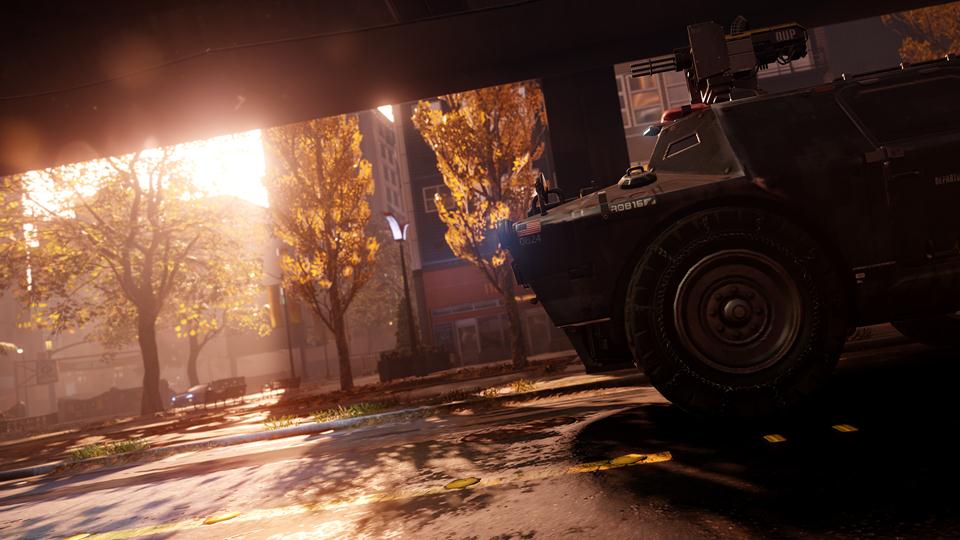

Fallout has given players the opportunity to become a hulking metal goliath through the use of Power Armor, an advanced armor suit that has been a recurring feature of the series. In Fallout 4, players can modify and customize their Power Armor with new levels of detail to fit their individual tastes and playstyles. However, like a rare classic car in need of a makeover, customizing these power suits is truly a labor of love. Follow this guide to get familiar with the basics of Power Armor and what these unique suits can do for you.
Power Armor suits essentially provide players with total body armor from head to toe. Thus, they are composed of a main frame and six smaller modules: a torso piece, four limb modules, and a helmet. The most important part of the suit is the Fusion Core, which is required to provide power to any Power Armor suit. Without the Fusion Core, a power suit becomes little more than a glorified scarecrow.
While wearing a Power Armor suit, damage is mitigated and players are less vulnerable to radiation. Power Armor gives players a Strength boost while inside the suit, allowing for a temporarily increased carry capacity. The suit also prevents all fall damage, so it’s perfect for making a dramatic rooftop entrance when ambushing foes. Try not to get carried away, however. The Fusion Core tends to run down very quickly, and sprinting in the suit causes the power to drain even faster. Use the sneak function to crouch while wearing the suit to avoid sprinting too much. Generally, it’s best to reserve your Power Suit for challenging objectives or tough enemies in order to benefit the most from its capabilities.
Players can acquire their first Power Armor suit soon after leaving Vault 111. Upon speaking with Codsworth in Sanctuary, head to Concord and help the people in the Museum of Freedom through a Minutemen quest titled When Freedom Calls. During the second half of the quest, players are given a fully functioning suit complete with a Fusion Core. Suits can also be attained by purchasing or looting the individual components, but this requires much more effort, making the Minutemen quest the easiest way to get a suit early on.
Although there’s nothing stopping you from diving into action with this newfound outfit, you may want to consider making some adjustments and repairs to it first.
Not quite, but with the right modifications, you can certainly come close. To repair and modify Power Armor, you must first locate a Power Armor Station. These are large yellow armor stands that are usually found near Workshop benches. Sanctuary and Red Rocket Truck Stop are the first places you can find these armor stands. If you access the Power Armor station without a suit nearby, they will act simply as another means to transfer items into the Workshop inventory for that settlement.
To begin modifying your Power Armor suit, get inside the suit and position the armor very close to the yellow stand. Now you should be able to access the Power Armor Station and see the components available for modification. Unfortunately, there doesn’t seem to be a way to actually hang the suit on the yellow stand, but this is more of an aesthetic gripe.
At the Power Armor Station, players can modify and repair each of the individual components of the suit. To replace suit modules, simply press Transfer while standing at your suit to swap modules out for ones in your inventory. If parts need repairs, access the Power Armor Station and press Repair to use materials to fix the broken components. These suits can’t work with busted parts, so be sure to repair often. New parts can also be crafted from large quantities of materials from the Workshop inventory. Many components require aluminum, adhesive, and circuitry, so make sure to mark these items for search and save some of these materials at the Power Armor Station for future use.
There are various types of mods available to alter the Power Armor’s functionality. Base mods offer different levels of protection, such as damage resistance and energy resistance. Material mods, such as lead plating, can alter the attributes of specific parts and can enable a bonus upon being equipped. However, many mods require that the suit be composed of all the same material mods for the bonus to apply, so select your mod types wisely.
Miscellaneous mods can be applied to individual armor pieces to enable powerful stat bonuses as well. Miscellaneous mod effects are often based on the function of the armor piece. For example, arm piece mods enhance unarmed combat, while leg piece mods affect sprint speed and landing impact. Helmets can even equip headlamps that change lighting colors. Equip a jetpack for added mobility and more of an Iron Man feel, or embed a tesla coil into the torso to inflict energy damage to nearby foes. Scan through the mod options to see which suit upgrades best suit your playstyle. Power Armor engineers will want to invest points in the Science, Blacksmith, and Armorer perks to access and build the more advanced armor mods.
Power Armor can also be customized with a slick paint job, some of which also apply perk bonuses for all painted parts. Paint schemes are available for each model of armor, except for the Raider Power Armor. New paint schemes can be acquired by completing certain faction quests, or by collecting issues of Hot Rodder magazine. For the locations of each issue of Hot Rodder, check out our Fallout 4: Magazine Locations and Types Guide.
As we mentioned earlier, Fusion Cores are the lifeblood of your Power Armor suit. These precious batteries can be purchased from vendors, or looted from generators, abandoned armor suits, and random containers throughout the wasteland. Search throughout basements, as generators tend to be found there. If you plan to use your Power Armor often, try to keep a steady supply of Fusion Cores handy. If the Fusion Core dies while wearing the suit, it will instantly be swapped for a new one in your inventory.
Keep an eye on your Fusion Core energy meter, as well as your overall fusion core supply to make sure you’re not caught in your Power Armor without power. Running, sprinting, VATS, and performing power attacks will all drain the core’s charge. When the Power Armor’s energy is fully depleted, the suit will move at practically a snail's pace, forcing you to exit the suit. If this happens during a firefight or quest, you will likely need to abandon the suit and come back for it later, since Power Armor frames cannot be carried.
The Power Armor is indicated on your map with a helmet-shaped icon to help you remember where you left it. You can fast travel while in your power armor suit, but usually you must be outside to do so. To manually replace the Fusion Core externally, walk up to the suit and press Transfer to insert the Fusion core into the Power Armor inventory the same way you would replace its armor parts. Also keep in mind that your Power Armor can be stolen, so remove the Fusion Core before leaving the suit anywhere.
Power Armor can help you survive challenging or life threatening situations. Put time and effort into creating your suit, and you’ll be one step closer to being the Commonwealth’s next Tony Stark (maybe). For more Fallout 4 tips and features, check out our Fallout 4 Walkthrough and Guide.




 League Of Legends Hecarim Jungle Guide
League Of Legends Hecarim Jungle Guide Super Mario 3D Land Star Coins Locations World 1
Super Mario 3D Land Star Coins Locations World 1 Friendly Fire Show 114: Breaching the fourth Wall
Friendly Fire Show 114: Breaching the fourth Wall FIFA 13 Career Mode
FIFA 13 Career Mode DOTA Hero Tips: Goblin Techies (Bomb Placement Strategy Included!)
DOTA Hero Tips: Goblin Techies (Bomb Placement Strategy Included!)